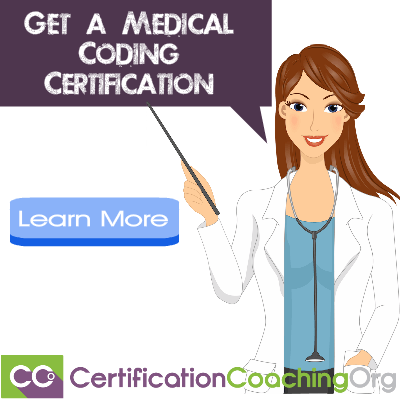 A medical coding certification demonstrates your commitment to medical coding. It also places you in a better position to make more money. According to the Bureau of Labor Statistics, most employers prefer to hire credentialed medical coders and certified coders earn approximately 17 percent more than non-credentialed coders. So, if you are seeking better job opportunities, more money and greater professional success, getting a medical coding certification is a good place to begin.
A medical coding certification demonstrates your commitment to medical coding. It also places you in a better position to make more money. According to the Bureau of Labor Statistics, most employers prefer to hire credentialed medical coders and certified coders earn approximately 17 percent more than non-credentialed coders. So, if you are seeking better job opportunities, more money and greater professional success, getting a medical coding certification is a good place to begin.
Hospital-based Versus Physician-based Medical Coding Certification Credentials
Many inpatient coders are outpatient coders first. Outpatient coding refers to most medical coding done in the healthcare industry. All of the coding for doctors offices, clinics, outpatient care facilities, etc. is considered outpatient coding.
Inpatient coding is done in hospitals for patients admitted for extended stays. On average, this coding is more complex because it involves longer patient records. As a result, inpatient coding positions typically require more education, experience, or certification, but there is also usually more advancement opportunity because the positions are typically in larger organizations.
Key Medical Coding Certification Organizations
The two main organizations are AHIMA and the AAPC. Both offer medical coding certification for physician and hospital-based settings.
AHIMA’s top medical coding certifications are:
- CCA ($199 for AHIMA members; $299 for non-members): This allows medical coders to demonstrate their medical coding competency in any setting – hospitals and physician practices.
To be eligible to take this exam, you will need:
- High School Diploma or Equivalency (required)
- Six months coding experience directly applying codes; or
- Completion of an AHIMA-approved coding program; or
- Completion of other coding training program to include anatomy and physiology, medical terminology, Basic ICD/diagnostic procedural and basic CPT coding
- CCS ($299 for AHIMA members; 399 for non-members): This medical coding certification exam demonstrate mastery level skills as an inpatient and out-patient hospital coder.
- CCS-P ($299 for AHIMA members; 399 for non-members): This medical coding certification exam demonstrate mastery level skills as a physician based coder.
To be eligible, to take either of these exams, you will need:
- Have another credential already (RGIA, RHIT, CCS or CCS-P); or
- Completion of a coding training program that includes anatomy and physiology, pathophysiology, pharmacology, medical terminology, reimbursement methodology, intermediate/advanced ICD diagnostic/procedural and CPT® coding; or
- Minimum of two years of related coding experience directly applying codes; or
- CCA plus one years of coding experience directly applying codes; or
- Coding credential from other certifying organization plus one year coding experience directly applying codes.
For information on how to prepare for these exams, visit: AHIMA Medical Coding Certification Info
The AAPCs’ core medical coding certifications are:
CPC ($399): This credential allows you to code in physician office settings. After passing the exam, you will know how to read a medical chart and assign the correct diagnosis (ICD-10), procedure (CPT), and supply (HCPCS Level II) codes for a wide variety of clinical cases and services.
COC ($425): This medical coding certification is geared to people working in outpatient or ambulatory billing and coding settings. The COC exam validates specialized payment knowledge needed for these jobs in addition to CPT and ICD-10 coding skills.
For information on how to prepare for any of these exams, visit:
![[CCO] Certification Coaching Organization LLC [CCO] Certification Coaching Organization LLC](https://www.cco.us/wp-content/uploads/2015/05/CCO-Logo-2015-d3-500px.png)
To become a certified medical Coder would I need to be a member of the creditals. I have a diploma in Medical Coding and Biilling? And what do I actually have to do to become certified in medical coding and billing besides study and take the exam to get certified?
“Certified Medical Coder” simply means you took and passed the AAPC CPC exam. Anyone can attempt to try and take that exam and pass it. And I really do mean anyone.
I can say, however, that very few diploma schools will properly prepare you for the exam. In fact, local college students are more likely to fail the exam since colleges do not prepare students for the CPC exam.
I recommend taking our Free CPC Exam with a timer (check CCO Proven Process for details) and checking your score. If you score 85% or greater, you’re ready to take the test today. If you’re scoring closer to 70%, you’ll need to take our Medical Coding Review Blitz or perhaps go back to a full Medical Coding course to relearn the material.